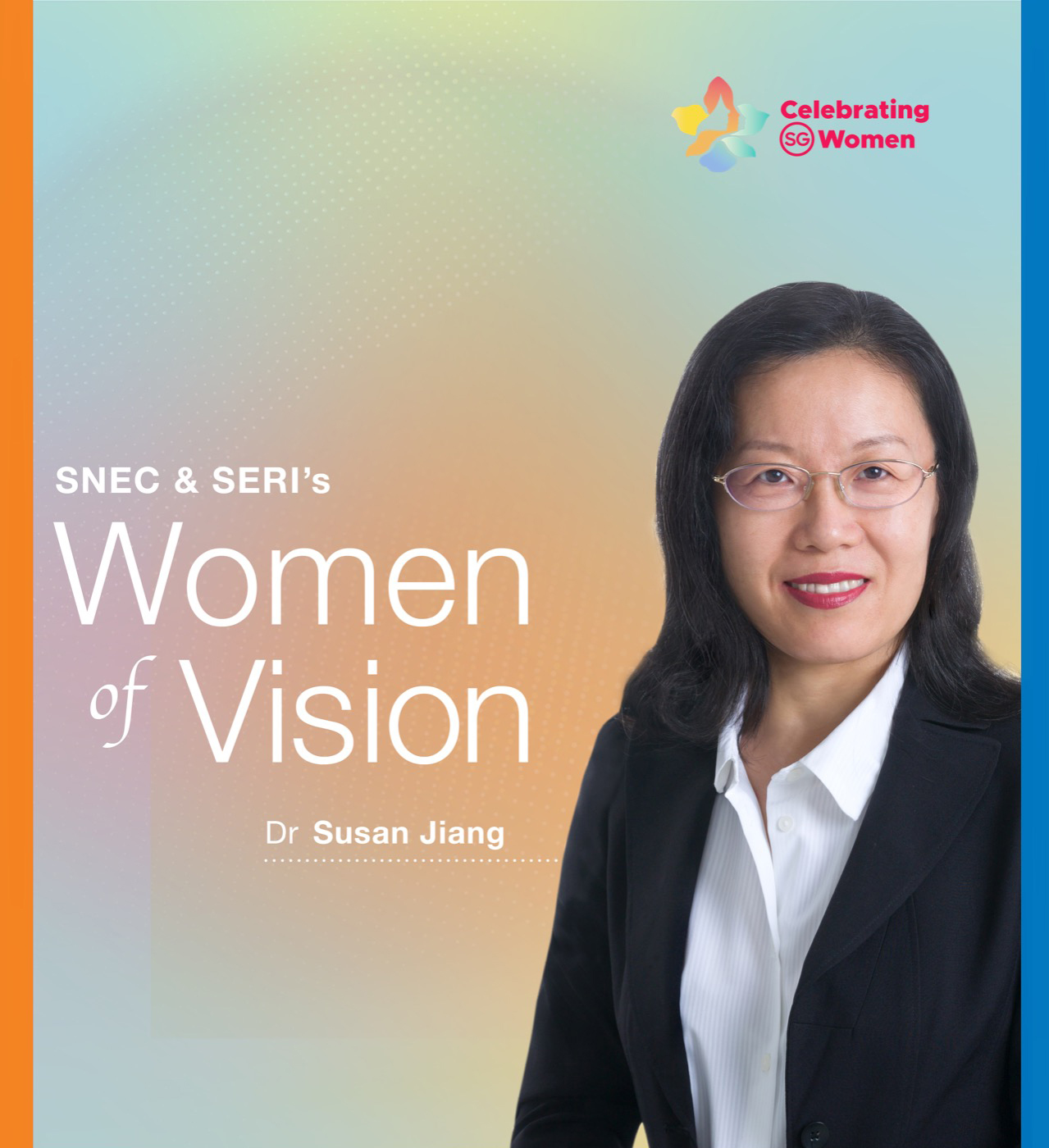Women of Vision
Celebrating SG Women
In the Year of Celebrating SG Women, we present stories which showcase and celebrate women’s multi-faceted contributions and progress at SNEC and SERI.
Join us to honour and acknowledge our team of amazing women who have made impact in the field of Ophthalmology, inspiring those around them with their brand of ethos in life.

Dr Susan Jiang
Research Fellow, Ocular Imaging Research Group, SERI
When you pursued a career in science, technology, engineering and mathematics (STEM), did you foresee yourself ending up in Singapore?
I come from a humble background, so when I was in school, I was keen to start work. Yet, when I was working, I felt that I needed to go back to school! I realised that the more I learnt, the less I knew. I also saw that I needed to find a place where I could learn more. I finally found it after migrating to Singapore and finding employment at SERI. Three years have passed; deep within me, I feel that this is the place where I want to be, where there are people I want to work with, and where I want to settle down as a scientist to further my career.
What and who inspired you to pursue research as a career?
I got into research by accident! I originally trained to be a surgeon, but things changed after I enrolled in a Master’s degree course in Ophthalmology. You see, I was the only person in my class who could conduct retinoscopy on guinea pigs — yes, I worked with guinea pigs! So I ended up being involved in all the animal projects using guinea pigs as the animal model. When I joined a collaboration conference between Wenzhou Medical College and top myopia research laboratories around the world, a world of research and scientific opportunities was suddenly open to me. I stepped in, but jumped out quickly because the huge unknown overwhelmed me. Then Prof Frank Schaeffel encouraged me to step in again, and he’s been mentoring me since. Prof William K Stell pushed me towards more basic research areas when I was doing my PhD, and still generously chips in whenever I need help. Three years’ postdoctoral study at the University of California, Berkeley, steered my career into basic research, and Prof Christine F Wildsoet directed me toward more independent research in myopia.
What research are you working on now and how will it benefit patients?
I am currently working on myopia basic research. Myopia is a significant global public health concern, reaching epidemic proportions in Southeast Asia. Previous studies have shown that early development of high myopia is frequently associated with sight-threatening eye conditions and socioeconomic consequences. Therefore, controlling myopia progression is a critical public health issue. My primary objective in investigating the mechanisms involved in myopia progression using guinea pigs as the animal model is to identify pharmaceutical and therapeutic targets for the development of new myopia-control therapies with improved efficacy over current options. In Singapore, nine out of 10 people are myopic, and one out of 10 are highly myopic. I am currently mentored by Assoc Prof Donny Hoang, Senior Consultant and Research Head of the High Myopia Clinic at SNEC, which has a cohort of over 1,000 high-myopia patients, 80% of whom have pathologic myopia. It is an ideal situation to have my findings validated and then translated for clinical trial studies through future collaborations with Assoc Prof Hoang to benefit patients.
What is the most memorable thing that has happened to you while working as a researcher?
When I was single, I didn’t know what my life goal was, so I just followed my intuition to learn more things. As I mentioned earlier, there was a period when I struggled with the fact that as I learnt more, the more I realised how much I don’t know. But when I became a mother, everything suddenly became very clear to me: I needed to stay positive and pursue something as a goal to show my kid what perseverance in life meant. When my son complained about how hard his studies are, I told him that my current study is also hard, but I do my best to find a way to conquer it. Even if I fail several times at first, the perseverance pays off in the end, and then I can proudly say, “Now I’ve done it!”
Click
here to check out the
Women of Vision series.
